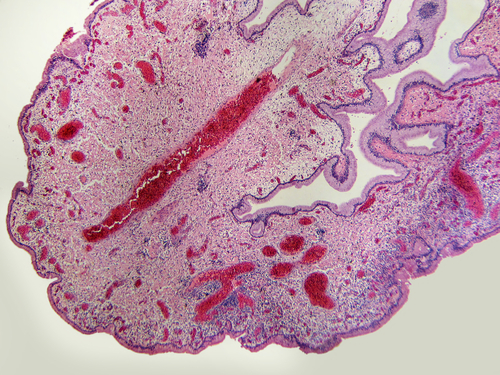Multiple Sclerosis Patients Could Benefit From Placenta-based Cell Therapy

 Recent research reveals that placenta-based cell therapy is both safe and effective for treating both Relapsing-Remitting and progressive forms of MS.
Recent research reveals that placenta-based cell therapy is both safe and effective for treating both Relapsing-Remitting and progressive forms of MS.
A new study entitled “Human Placenta-Derived Cells (PDA-001) for the Treatment of Adults With Multiple Sclerosis: A Randomized, Placebo-Controlled, Multiple-Dose Study” and published in August issue of Multiple Sclerosis and Related Disorders reports patients with Multiple Sclerosis can tolerate a new treatment performed with human placental-cultured cells.
In Multiple Sclerosis (MS), a chronic autoimmune disease, a patient’s own immune system attacks its central nervous system, specifically myelin, a component of nerve fibers, leading to lack of motor function and paralysis. While in the beginning the symptoms are sporadic — a stage termed relapsing-remitting MS (RRMS) — the disease progresses with worsening symptoms. This next stage of the disease is called secondary progressive MS (SPMS).
In the new study, the authors aimed to evaluate the safety of treating MS patients in various stages of the disease with PDA-001 cells, mesenchymal-like stem cells derived from human placenta, which can be found in many tissues in the body. Not only was the safety of the treatment demonstrated in the study, but the authors also found that infusion with PDA-001 can induce repairing of damaged nerve fibers in MS patients. The major advantage to this system is the ability to expand these cells in culture and produce high amounts of the therapy with a single donor.
[adrotate group=”4″]
The study was performed with 16 MS patients at different stages of MS — ten with RRMS and six with SPMS — between the ages of 18 to 65 years old. PDA-001 infusions were distributed at high doses, low doses, and compared with placebo. The worsening of MS was monitored over the course of six months, where all the patients were monitored with brain scans to ensure no enlargement of the brain was observed. After one year, all the patients exhibited stable or improved signs of disability.
Fred Lublin, MD, lead author, Director of the Corinne Goldsmith Dickinson Center for Multiple Sclerosis, Professor of Neurology at Icahn School of Medicine at Mount Sinai commented, “This is the first time placenta-derived cells have been tested as a possible therapy for multiple sclerosis. The next step will be to study larger numbers of MS patients to assess efficacy of the cells, but we could be looking at a new frontier in treatment for the disease.” Dr. Lublin sees great promise in further developing MS treatment strategies based on the findings, concluding: “We’re hoping to learn more about how placental stromal cells contribute to myelin repair. We suspect they either convert to a myelin making cell, or they enhance the environment of the area where the damage is to allow for natural repair. Our long-term goal is to develop strategies to facilitate repair of the damaged nervous system.”






